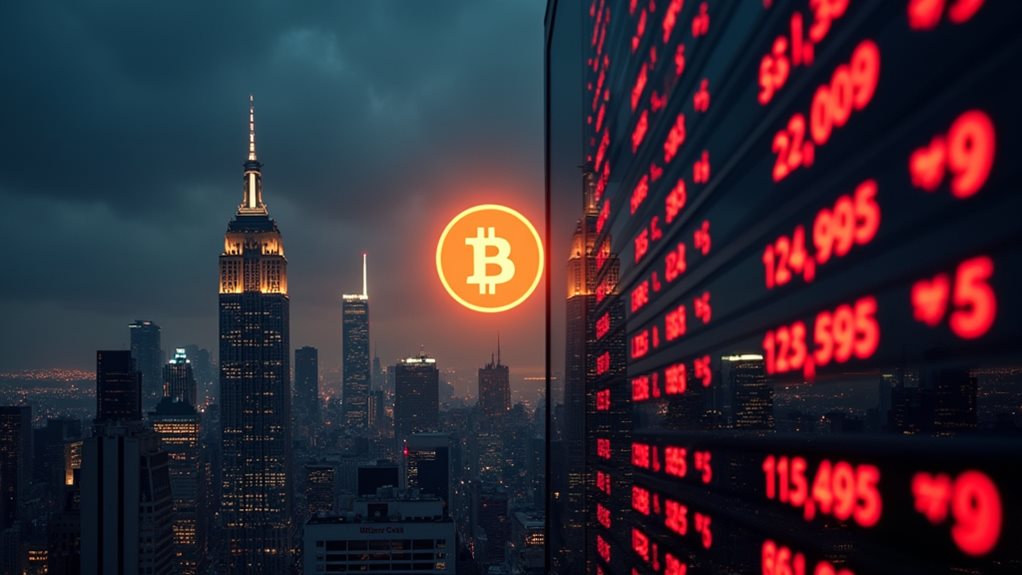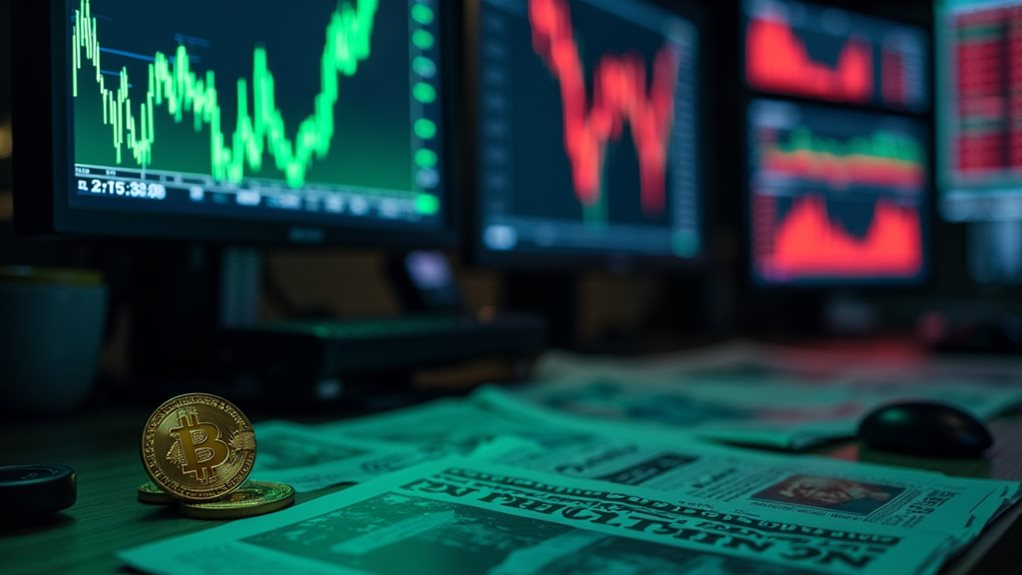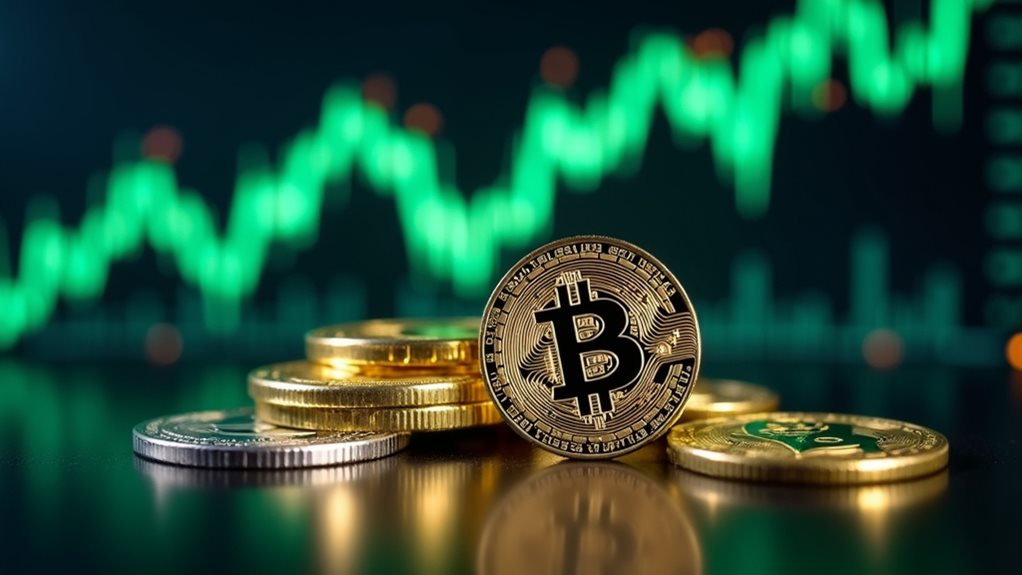Bitcoin surged 7% to $81,200 while traditional markets tanked on news of U.S. tariffs against Canada. The Dow plummeted 600 points as investors freaked out over trade tensions, but crypto had other plans. Bitcoin's dramatic rise from $79,000 showcased its growing independence from conventional market patterns. With crypto market value hitting $3.33 trillion and Bitcoin dominance at 74%, skeptics got a reality check. The market's wild ride is just getting started.

While global markets reeled from the impact of new U.S. tariffs on Canadian imports, Bitcoin staged a dramatic comeback with a 7% surge – proving yet again that crypto rarely plays by the rules. The Dow Jones Industrial Average wasn't so lucky, plunging over 600 points in a single trading session as investors grappled with the implications of escalating trade tensions.
Bitcoin defies market logic once again, soaring 7% while traditional markets crumble under the weight of trade war tensions.
The crypto market's response has been anything but predictable. Bitcoin's initial dip below $80,000 had crypto critics gleefully preparing their "I told you so" speeches. But then, in classic Bitcoin fashion, the cryptocurrency pulled off an impressive reversal. The latest price jump took Bitcoin from 79,000 to 81,200 dollars within hours.
Meanwhile, traditional markets continued their downward spiral, with both the Nasdaq and S&P 500 posting significant losses. Recent analysis from experts suggests a potential bear trap scenario rather than a sustained downtrend. The crypto market's impressive $3.33 trillion valuation and Bitcoin's market dominance of 74% demonstrate its growing maturity in the financial sector.
The Trump administration's ever-changing tariff policies have created a perfect storm of market uncertainty. Every tweet, every announcement, sends traders scrambling. And while Wall Street executives pull their hair out, Bitcoin seems to be dancing to its own tune.
Ethereum and other major cryptocurrencies have followed Bitcoin's lead, though with their own brand of volatility.
The broader economic picture isn't exactly rosy. Inflation concerns are mounting, recession fears are growing, and the U.S. dollar is showing signs of weakness. Canada's retaliatory measures haven't helped calm anyone's nerves either.
Yet some crypto investors are viewing this chaos as an opportunity, continuing to accumulate Bitcoin despite – or perhaps because of – the economic turmoil.
Market sentiment remains decidedly jittery. Traders are tiptoeing around major positions like cats on a hot tin roof, waiting for the next economic shoe to drop.
The crypto market's classification as a risk asset hasn't stopped it from occasionally breaking free from traditional market correlations. It's a reminder that in times of geopolitical uncertainty and economic instability, Bitcoin continues to surprise both its critics and supporters alike.
Whether that's a good thing or not depends entirely on your investment timeline – and perhaps your blood pressure tolerance.









